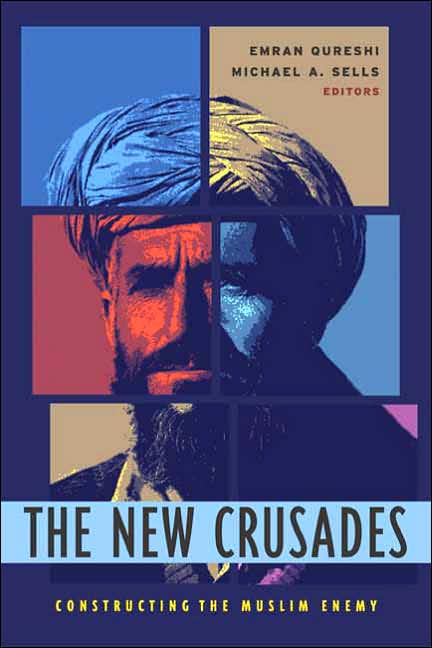In their minds, those self-declared "Christians" have a picture of the 'Disciples of the Lord' reaching their ancestral shores, raising their hands saying "Good News!" and everybody came rushing to the 'Disciples' with a shout of joy "Heeeeyy! We are ALL Christians!"
And just like that, their ancestral Valhalla and Druid traditions--among others--became a bygone story.
Now,
Let's start with some questions to see how genuine and authentic was the Christianity that was "adopted" by the Barbarians, west and north of Rome. The questions were put forward by a noted missionary of the last century, Kenneth Scott Latourette, in his introduction to volume one of his book: A History Of The Expansion Of Christianity: The First Five Centuries, pp. x-xv:
What was the Christianity which spread?James C. Russell's afore-mentioned book takes those questions as a launching pad (pp. 15-16).
Why did Christianity spread?
Why has Christianity suffered reverses and at times met only partial success?
By what processes did Christianity spread?
What effect has Christianity had upon its environment?
What effect has environment had upon Christianity?
What bearing do the processes by which Christianity spread have upon the effect of Christianity on its environment, and of the environment upon Christianity?
Richard A. Fletcher took them into consideration too, albeit in a modified form, in his book The Barbarian Conversion: From Paganism to Christianity (pp. 6-9). Here they are summarized by a reviewer who happens to be one of the christianized & civilized barbarians himself:
First: The problem of the apostolic impulse. Why, for example, did Saint Gregory I decide to send a mission to convert the English to Christianity?"
Second: "Who were these activists who engaged themselves in the work–the toilsome, often unrewarding, sometimes dangerous work–of missionary preaching?"
Third: "Who were identified as the potential converts, individuals or groups, central people or marginal people, kings, nobleman?"
Fourth: "What were the expectations of the potential converts, founded in their experience of the traditional religion in whose observances they were brought up? What did they expect of it?"
Fifth: "How did evangelists set about the business of putting over the faith and its associated standard of conduct to potential converts?"
Sixth: And this is a question apropos of current day evangelization in Asia and Africa, the question of "enculturation." "What compromises or adjustments did missionary Christianity have in a early medieval context? How and what were the limits drawn between what was tolerable in traditional belief and practice and what was not? Take, for example, 'marriage, penal practice, the disposal of the dead, warfare, bloodfeuds, slave trading.'"
Seventh: "What did the new converts make of the new faith and its demands? What models of Christian living were presented to them?"
Eighth: "How did a structure of ecclesiastical government come into being in the mission field, and how did it differ from the Mediterranean model whence it derived?"
Ninth: And perhaps most importantly, "What makes a Christian? At what point may one say of an individual, or a society, ‘He has become, is now a Christian?'"
To the above three authors, one can add others from different schools of thought who questioned the genuineness of the Christianity that was adopted by the Barbaric West. (e.g. here and here).
Of late, a great anthology of research on the subject at hand came to my attention: "The Cross Goes North: Processes of Conversion in Northern Europe, AD 300-1300" - Martin Carver (ed.)
The editor has this to say on page-4:
Our authors show us the under-side of the process, more secret and more subtle, and ultimately more significant, by turning the spotlight from the missionaries onto the converted, and exploring their local situations and motives.
What were the reactions of northern peoples to the Christian message?
Why would they wish to adopt its structures and its strictures for the sake of its alliances?
In what way did they adapt the Christian ethos and infrastructure to suit the social structure and natural environment of their own community?
How did conversion effect the status of farmers, of smiths, of princes and of women?
Was society wholly changed, or only in marginal matters of devotion and superstition?
These are the questions we address in this book, using the techniques of different disciplines and the experience of different parts of Europe.
In nowadays,
The descendants of the christianized and civilized barbarians, who neither kept their ancestral traditions nor got Christianity right, are perpetuating the ideology of the Romanized church. It is still alive and well--and in North America, out of all places. Jesus is God and God is Jesus, and what does not look like JesusGod is of the Devil.
We say in North America out of all places because the founding of the U.S. of A. was based on the One God-One Adam monotheistic principle of unity, which in turn was based on the primordial covenant between God and Adam, and Creation as a whole. A subject sorely missing in nowadays American mentality.
And most disturbing of all is the fact that a morally bankrupt political leadership has been employing those deluded descendants of the christianized & civilized barbarians of the holy Roman empire to their own Oil agenda -- Crusades anybody? ~

